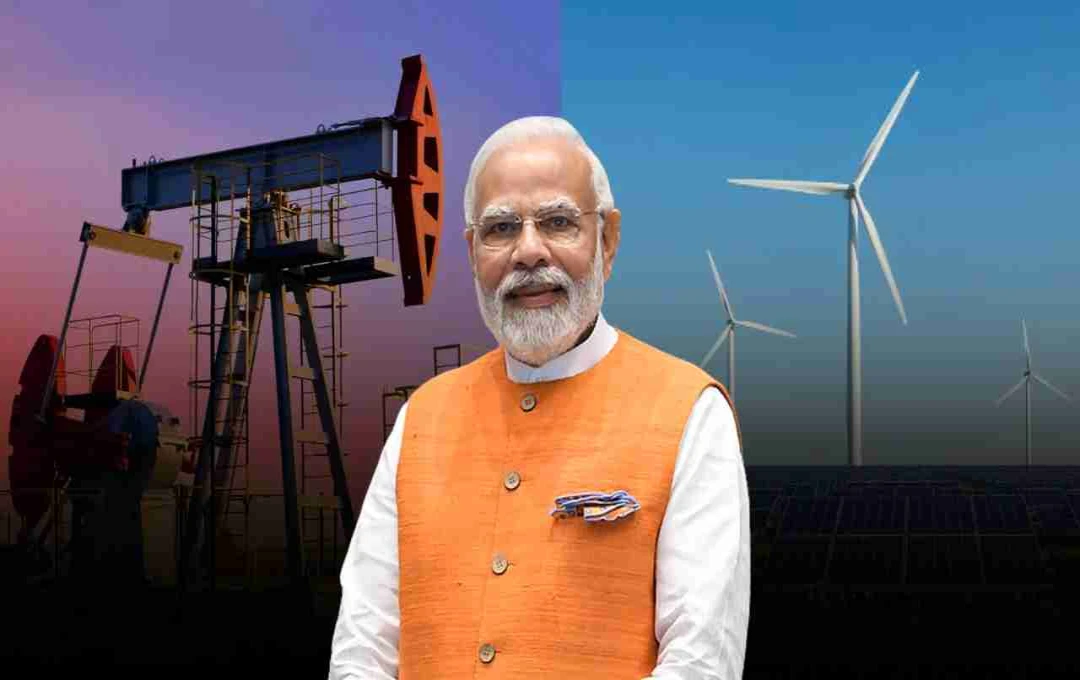The government will implement major reforms in the oil and gas sector by September to counter US pressure, strengthen energy security, and promote domestic production and biofuels. These steps are expected to alleviate India's growing dependence on Russian oil imports and accelerate alternative fuels like ethanol blending.
New Delhi: The Indian government has announced that significant reforms in the oil and gas sector will be implemented by September 2025. These reforms aim to reduce US pressure, strengthen energy security, and promote domestic production and biofuel-ethanol blending. The White House has increased pressure on India regarding Russian oil purchases, while China and Turkey import significantly more. The reforms are expected to attract foreign investment and promote alternative fuels.
Preparing to Deal with Global Pressures
India has long been dependent on West Asia for its oil supply. However, frequent armed conflicts there and threats to critical sea lanes like the Suez Canal and the Strait of Hormuz pose a risk to continuous and secure oil supplies. The government believes that promoting domestic production and the use of alternative fuels can significantly address these pressures.
US Pressure and Oil Imports from Russia

The United States has been consistently pressuring India to stop buying oil from Russia. White House advisor Peter Navarro recently alleged in an article that India's oil lobby is providing funds for the war to Russian President Vladimir Putin. He claimed that India's refining companies are turning the country into a major refining hub through discounted Russian oil. This was widely seen as pressure on India to stop buying oil from Russia.
However, Indian officials have clarified that it is the commercial decision of the country's refining companies from which country they buy oil and the government does not interfere in it. They have also said that there is no restriction on Russian oil, as there is on Iran or Venezuela.
Why No Questions on China and Turkey?
India has also argued that Navarro deliberately omitted the names of China and Turkey. The reality is that China buys the most oil and gas from Russia. According to a report by the Finland-based think tank, the Center for Research on Energy and Clean Air, in the third year of the Ukraine war, China bought more than $90 billion worth of fossil fuels from Russia. This is 60 percent more than India. Meanwhile, Turkey bought $41 billion worth of Russian fossil fuels during the same period. According to the Indian government, ignoring these facts shows America's double standards.
Reforms in the Legal Framework
The government has recently amended the Oilfields (Regulation and Development) Act, 1948. Under this, the draft rules will be finalized within a few weeks. After this, they will be implemented. These rules will also apply to foreign companies such as Chevron, Exxon, and Total, who may be potential participants in India's 10th drilling round. The aim is to attract foreign investors and promote domestic production so that India can be more self-reliant in its energy needs.
Emphasis on Biofuel and Ethanol

The government believes that ethanol blending will not only reduce dependence on imported oil but also reduce air pollution. Currently, India has a target of 20 percent ethanol blending (E20) in petrol. But now the government is preparing to take it further. An inter-ministerial committee will give its recommendations by September. This will include phased options for increasing ethanol blending to E22, E25, and E27.
The official clarified that the ongoing debate on ethanol will not stop the government's plans. Flex-fuel engine vehicles, which can also run on 100 percent ethanol, will be part of the future energy security strategy.
The Growing Need for Domestic Production
India's energy consumption is constantly increasing. At present, India is the third-largest oil importer in the world. In such a situation, increasing domestic production is a big challenge. The government wants to attract private and foreign companies for investment. This is the reason why reforms are emphasizing transparency and easy rules.















